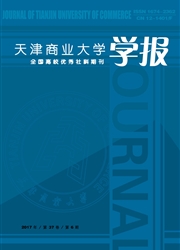

 中文摘要:
中文摘要:
天津是我国低碳试点省市之一,从发展低碳经济的角度看,天津市三次产业结构调整势在必然。本文分析和比较了天津市三次产业的演进过程和现状特征,在对碳排放量的估算方法进行讨论与合理选择的基础上,对1995--2010年天津市三次产业碳排放量及碳排放强度进行了估算。针对低碳经济模式下天津市工业结构的优化以及三次产业结构的调整,解决经济发展中的能耗高、环境污染严重等问题,提出了政策性建议。
 英文摘要:
英文摘要:
As new energy market-pull policies, Feed-in Tariffs and New Energy Portfolio Standards are widely adopted in the foreign countries. The countries of European Union stress the government-leading model, so most of them have implemented the Feed-in Tariffs. The States of the US have become the stronghold of New Energy Portfolio Standards based on government guiding market resources allocation. Scholars have launched a fierce debate about the two kinds of policies, which is essentially a contest between the state interventionism represented by EU and laissez-faire characterized by the United States. Through reviewing the literature and analyzing the data, the article found that Feed-in Tariffs was superior to New Energy Portfolio Standards in the economic feasibility, the effect of policy implementation and the stimulation of technological progress.
 同期刊论文项目
同期刊论文项目
 同项目期刊论文
同项目期刊论文
 期刊信息
期刊信息
